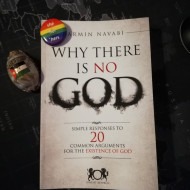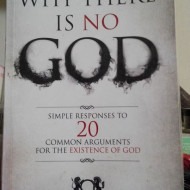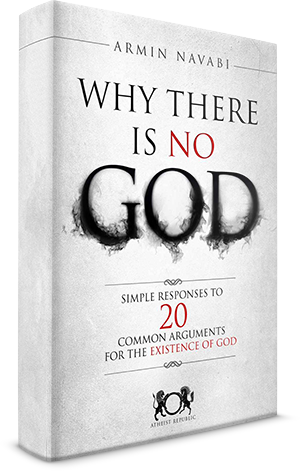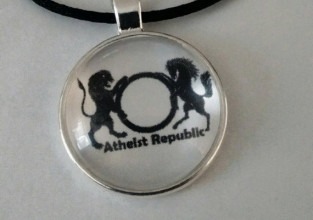
I used to be one of you. I considered it an honor and a privilege to be numbered among you. All of the things which made me your brother and fellow member were the things I valued most in the entire world. My experiences while among you have left their indelible marks upon me and I’m truly grateful for each and every one of them, both the good and the bad. They have contributed to my personal growth and discovery as a human being, each in their own way, and I wouldn’t be the person I am today without them. For that, I thank you.
I no longer believe what I used to believe. The things which made me one of you are no longer a part of how I live my life or make my decisions. They no longer form the basis for my view of the world or my interactions with other people. You would no doubt consider this self-destructive and detrimental; I consider it unimpeachable progress. We are at odds on a great many things, you and I.
Label and Define
I am an atheist. That means I don’t believe in the existence of any gods, and that’s all it means. It says nothing about how I arrived at that position, about my personal character or interests, or about any other beliefs I hold or reject. I hear you use the label atheist in your sermons and lectures, and it appears you’re ascribing much more to it than I am. I’ve heard you say that atheists are in open rebellion against God, believe physical matter is all that exists, have no ultimate meaning in life, have no basis for morality or justice, and a host of other things. This sort of thing makes communication easier among yourselves because it groups a large number of things with which you disagree under a single label. This move also makes it easier for listeners to understand the material you’re presenting. Although it seems to simplify things, it actually has the opposite effect.
It unnecessarily complicates discussions between us, requiring an inordinate amount of time and effort to be spent quibbling over word meanings before any real discussion can even begin. You cling to your operational definitions with a vice grip and refuse to alter them in the slightest, even if only temporarily. This renders true understanding impossible from the outset because you just aren’t listening. It also throws up numerous road blocks by bootstrapping all of these other things onto the label atheist. This works against you because every additional thing you ascribe to the label is in fact a separate topic which isn’t necessitated by atheism per se.
We can talk about the nature of things which exist in the world, about morality, about meaning and purpose in life, or about anything else you want to discuss. But those discussions are separate from the one about whether or not gods exist. Any time you bring up any of these other topics, you aren’t challenging our worldview as you suppose; you’re attempting to change the subject. It seems as if the definition of atheism requires its own discussion before we can get to anything else. It’s an important topic to address for the sake of clarity because different atheists will attach different connotations to the label as they wear it and discussions about topics such as the existence of gods require a degree of linguistic precision. But it’s counterproductive to force a protracted exchange rather than simply accepting the personal usages we give you and operating with them during the discussion.
Resist and Assume
You seem to have numerous reasons for this resistance. Perhaps you have an inherent mistrust of those who don’t believe as you do, viewing them as being of inferior character or weaker moral fiber somehow. Maybe you feel an overwhelming urge to proclaim your good news to them and your need to control the conversation, ineffective and frustrating as it is, comes with good intentions from an honest place. Perhaps you feel an intense inner drive to challenge any and all opposing views in order to prove yours to be correct. I’ve seen all of these motivations and more at work in various discussions. Regardless of your reasons for resistance to my use of the label, I’m simply telling you what I mean when I use a particular loaded word so that we can understand one another. Ignoring my meaning and substituting your own will only confuse you and force you into a conversation with yourself.
Assuming certainty about knowledge you couldn’t possibly possess and assuming to know the minds of other people is worse than disrespectful—it’s dehumanizing. I know you recognize this because you lodge similar complaints when you’re on the receiving end of similar treatment. Oddly, this recognition doesn’t stop you from engaging in the behavior yourselves. To the contrary, you claim doctrinal support for this behavior and you could probably give me the Bible verses from which you derive it. No doubt you could tell me how only a fool would say in his heart “there is no god”, or maybe you would opt for telling me how I already know your god exists because he has put that knowledge in every human heart. If I tell you anything to the contrary, you won’t believe me. You’ve already made up your mind that I’m a fool who’s suppressing the truth I already know and that you can’t possibly be wrong about it. The arrogance and condescension of that approach should be obvious.
Acknowledge and Listen
I acknowledge that you are all different, unique individuals. Of course there are similarities among you regarding certain beliefs and religious experiences, but you aren’t a monolithic group. You come from different cultural and economic backgrounds and you’ve each had unique experiences which have helped shape you into who you are. I don’t presume that one of you speaks for all of you or that a single member from among you is representative of the whole. Some of you are unquestionably despicable human beings, but the majority of you seem to be well-meaning, well-intentioned people trying to do what you think is right and best. I’ve personally met both types of people among you as well as numerous others who are somewhere in between. I acknowledge those differences and treat each individual with the respect their behavior toward me warrants.
Atheists are just as varied a group as you are. Some of us are firebrands, some are diplomats, some are both and some are in between. Some are loud and assertive, others are quiet and reserved. Some are belligerent and annoying, others are respectful and winsome. We are some of the brashest idiots you could ever have the misfortune to talk to, and we are some of the sweetest, most congenial people you could ever have the privilege to meet. More importantly, we each have our own stories to tell. Rather than assume your broad generalizations and oversimplified definitions enable you to automatically know who we are, you’d do better to let us each speak for ourselves and to listen to what we say.
You’d be surprised at the number of things you don’t know.





























